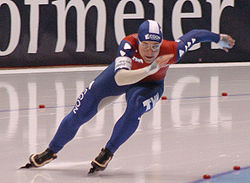An earlier version of this was first posted on 13th February 2012
Chan ge is very often considered to be a slow and often difficult process. In particular, ‘culture change’ is seen as a long and winding road. Human beings are notable as creatures that have mastered (or, at least, have developed) the art of adapting. We have changed our knowledge, decisions, behaviour, environment, relationships, societies. It is too easy to think that we ‘don’t like change’. This is simply not the case. We are beings that not only adapt to what is around us, but we often actively choose to change what is around us. After all, it is not uncommon for us to seek to find ways to make things better or different (either for ourselves or, sometimes, others!).
ge is very often considered to be a slow and often difficult process. In particular, ‘culture change’ is seen as a long and winding road. Human beings are notable as creatures that have mastered (or, at least, have developed) the art of adapting. We have changed our knowledge, decisions, behaviour, environment, relationships, societies. It is too easy to think that we ‘don’t like change’. This is simply not the case. We are beings that not only adapt to what is around us, but we often actively choose to change what is around us. After all, it is not uncommon for us to seek to find ways to make things better or different (either for ourselves or, sometimes, others!).
My great-grandfather (who was still around when I was a youngster) was born into the Victorian age in the 1880s. He was already a young man when the Wright brothers first flew at Kitty Hawk, yet lived to experience flying in jet airliners and even saw the Apollo astronauts land on the moon. His life experiences, work and education had to adapt fairly radically, but I imagine it was a fairly natural process – that’s life.
Organisations can change faster that society as a whole. Whilst change should be seen as a ‘natural’ process, it is one which we should actively influence ourselves. Change can occur in noticeable timescales; weeks and months not years. Changes should move into short timescales to become noticeable, rather than at barely-observable ‘glacial’ rates. Herrero (2006) goes further, suggesting that if cultural changes cannot be observed in short time-frames, then something is wrong.
- “Cultural change does NOT need to be a slow and painful long-term affair.” – there is a better way.
- “Short-term wins CAN represent real change.” with viral networks which engage many people, small changes can lead to a big impact.
We need to accelerate change by engaging networks of people in making things happen. In a previous post it was suggested that small sets of behavioural changes, taken on and shared by informal groups of people can generate improvements in a non-linear way, as Hererro terms it, a ‘viral’ spread.
To influence others we need to encourage quick, meaningful changes; not just ticking items off the ‘to do’ list, but adopting new behaviours, new ways of thinking, new habits. These things may appear less tangible, but they do have impact, they don’t need to wait for a sign-off by top management and they do allow change to happen much quicker.
Remember to read:
Herrero, L. (2006) Viral Change, meetingminds, UK.

change should be seen as a ‘natural’ process only agree with this sentence. every era, humans continue to change and the process of change continues to occur the way each individual survives continues to improve.